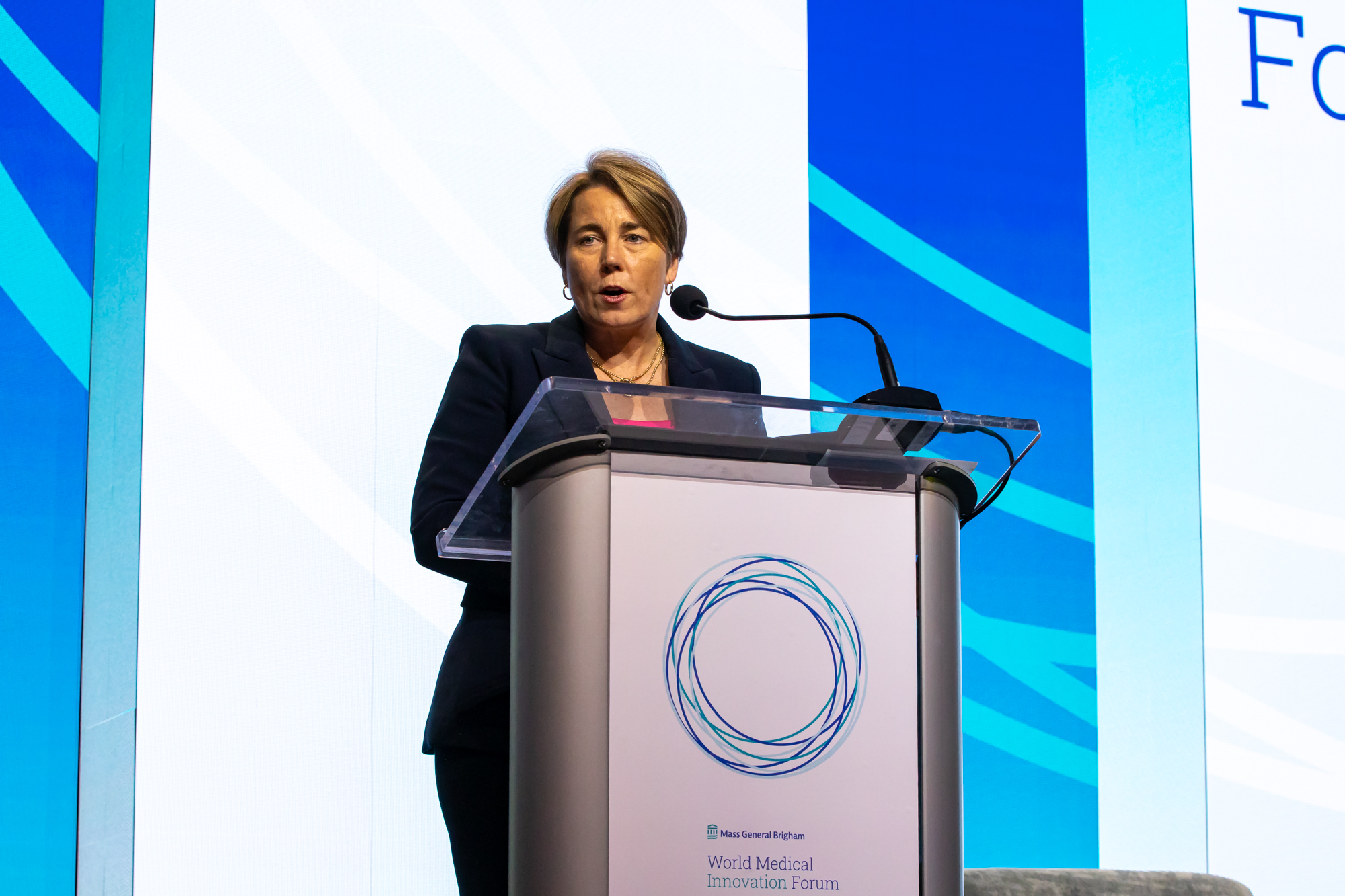In Sept., the Healey-Driscoll Administration and The Massachusetts Life Sciences Center (MLSC) announced $19.8 million in funding to support 15 projects driving life sciences innovation in Massachusetts. This funding is spread across several MLSC programs including the Research Infrastructure program, which awarded $11.5 million to support 4 projects.
As part of this recent announcement, the MLSC is proud to support Dr. Ciprian Catana, MD, PhD and his work with biomedical imaging technologies. Ciprian Catana, MD, Ph.D., is a Professor in Radiology at Harvard Medical School and the Director of Integrated PET/MR Imaging and PET Physics at the Massachusetts General Hospital (MGH) Martinos Center. A positron emission tomography (PET) scan is an imaging test that can help reveal how organs and tissues are functioning inside the body. It also can assist in the detection of disease and the study of interconnected systems involved in cancer, cardiovascular diseases, obesity, Parkinson’s disease, HIV, and chronic pain.
Dr. Catana was awarded $3,250,000 through the MLSC’s Research Infrastructure program to support the installation of a state of the art long axial field-of-view positron emission tomography/computed tomography (PET/CT) instrument at Massachusetts General Hospital. The Martinos Center and its core imaging facilities attract hundreds of trained and certified users to leverage employ its variety of innovative technology, equipment, and systems in their research projects. The broad range of biomedical imaging needs of this exceptionally large and diverse user community both places demands on and drives the continuing technological advance of the Martinos Center’s state-of-the-art imaging facilities.
“We are extremely thankful to the MLSC for enabling us to purchase this instrument, which is currently not available in New England,” said Ciprian Catana, MD, PhD, Director of PET Physics at Ahinoula A. Martinos Center, MGH. “The instrument will enable investigators to explore new directions in Integrative Medicine, particularly by studying interconnected systems (e.g., brain-heart, brain-vasculature, brain-body, heart-body and gut-liver-brain axis) and processes that involve multiple organs (e.g., metabolism, amyloidosis and inflammation), opening opportunities for groundbreaking research.”
PET is a key technology at the Martinos Center, attracting researchers from the center, MGH, and the Boston research community. Over the past 15 years, the Martinos Center has worked to build deep expertise in PET imaging and uses this experience to enable and support a wide variety of studies. The new MLSC-funded instrument will also enable the design of new clinical and translational studies and attract new users from the large community of investigators within the Massachusetts Life Sciences ecosystem. This will create a unique resource that complements existing capabilities in biomedical research.
The Research Infrastructure program provides grants for capital projects that support the life sciences ecosystem in Massachusetts by enabling and supporting life sciences research and development in the Commonwealth. To date, the MLSC has awarded or committed more than $600 million to support capital research infrastructure projects across the state.
The MLSC’s Research Infrastructure program recently closed its application period on Dec. 6, 2024 at 1 p.m. EST. Click here to learn more.



